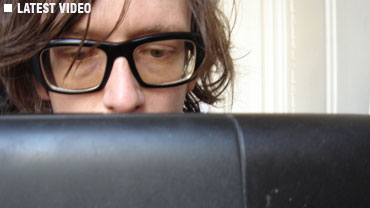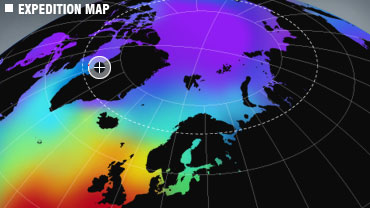Hello and welcome to my blog! This is my last chance to write to you on dry land, as tomorrow I’ll be spending many hours on a train heading from the west coast of Scotland down to London to join the rest of the team. I’m incredibly excited now about visiting West Greenland, but cannot yet imagine how it will feel to see a glacier that is losing 20 million tonnes of ice a day. Climate change is real, and we’ll be seeing its effect right before our eyes.
My work as an oceanographer involves studying the oceans in order to understand the impact that these changes will have. The ocean is never at rest. Temperature and salinity variations across the globe lead to changes in the density of water; when water gets colder or saltier than it was, it gets denser and sinks. It is this process that leads to surface water sinking at the poles and travelling at depth towards the equator. Warm water from the equator travels towards the poles on the surface in currents such as the Gulf Stream resulting in a massive overturning. Without this our climate in the UK would be similar to Alaska! In 2007 we observed the warm water heading northwards by Spitsbergen and were caught in the ice being transported southwards east of Greenland (See my 2007 blog). This year we’ll be looking at the cold freshwater influence from the glaciers on the west coast of Greenland and continuing our transect across towards Canada using a CTD (Conductivity (for salinity), Temperature and Depth).
Providing, as Carol says, our container is not full of toothbrushes, we’ll also be launching an ARGO float… Let me tell you a little more about these fantastic pieces of kit tomorrow. If you can’t wait, click for a preview by reading about the ARGO float launched during the 2007 Cape Farewell expedition (pictured above).



